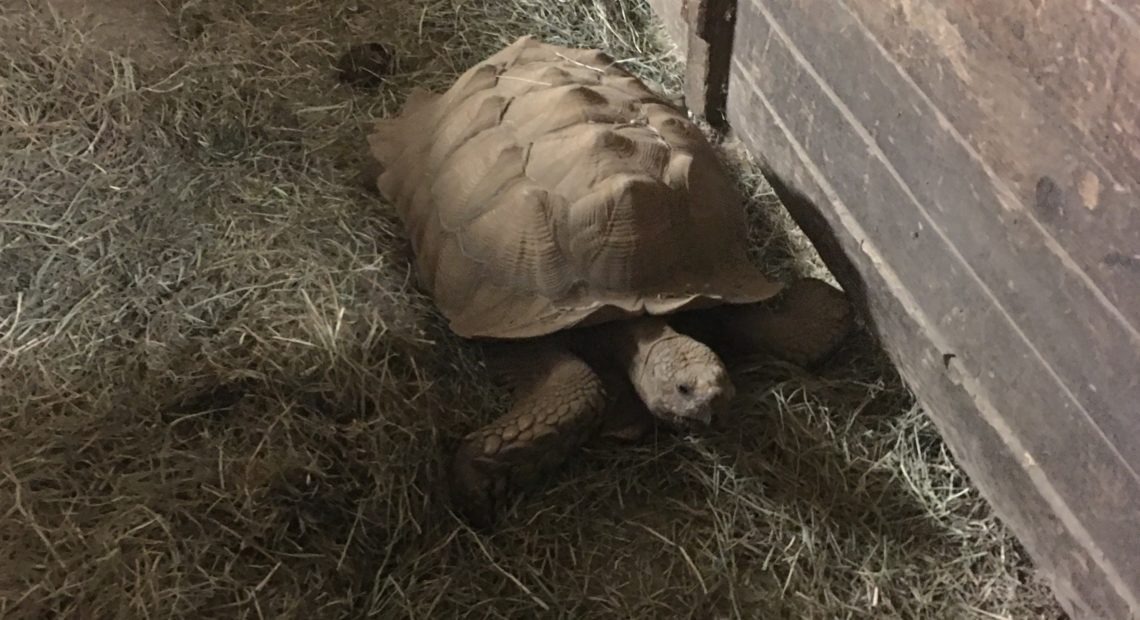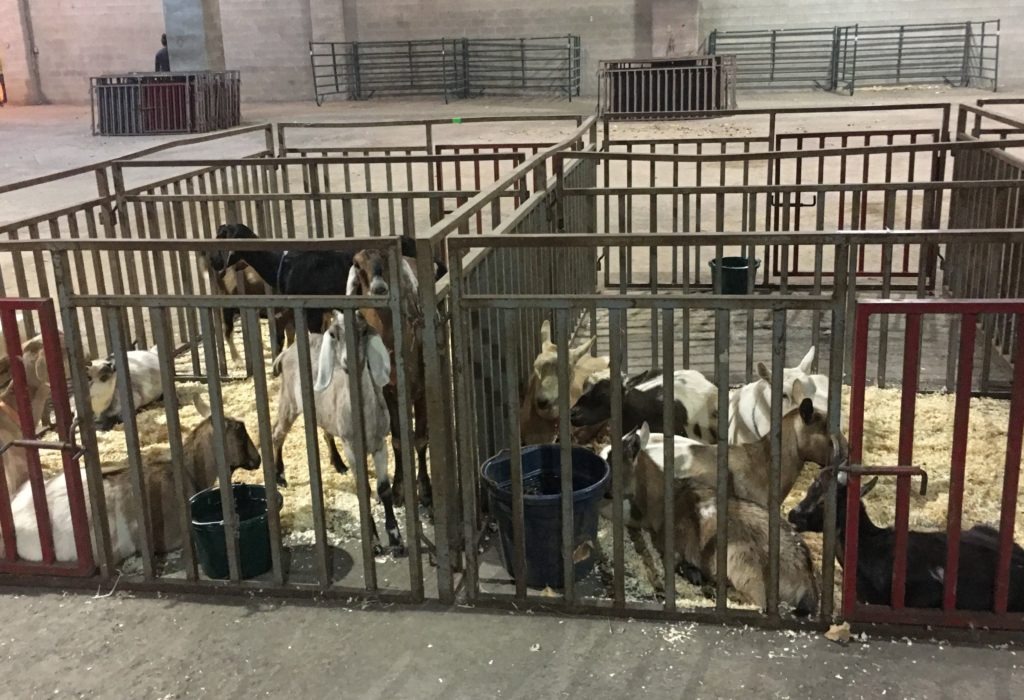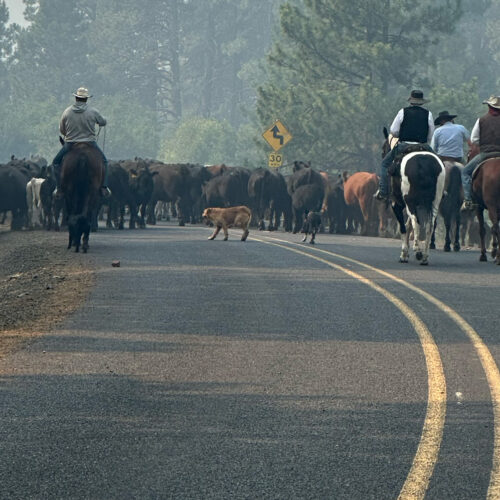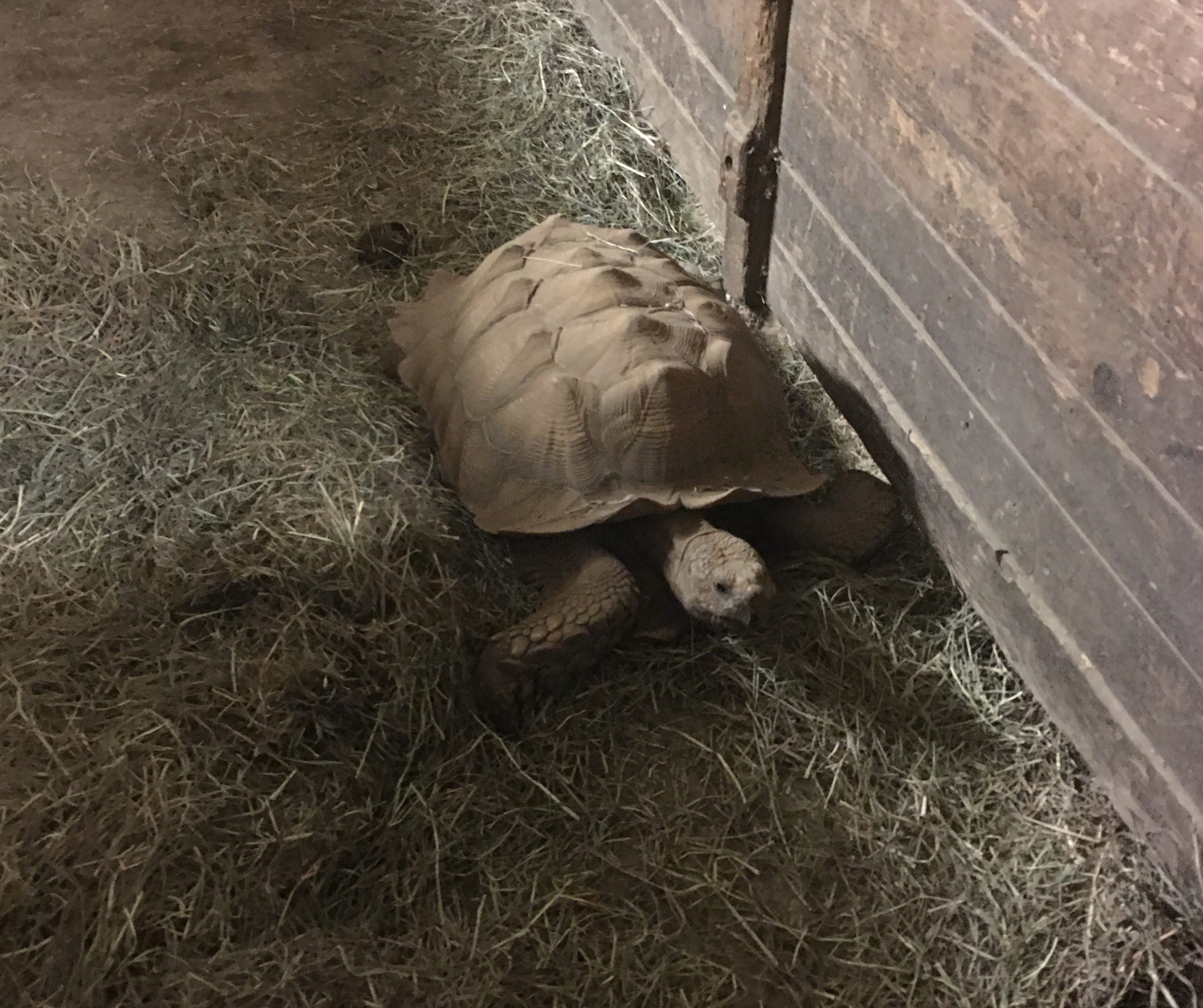
Goats, Llamas, Tortoise: All Welcome, Some Stressed As Fairgrounds Become Fire Evacuation Centers
READ ON
Widespread wildfires across the Northwest are causing owners to evacuate more than 2,000 pets and livestock into fairgrounds, friends’ properties and even across state lines.
At the Oregon State Fairground, in Salem, there are at least 500 animals evacuated: horses, sheep, goats, dogs, cats, chickens, birds and even a tortoise.
Erica McKenzie, a large-animal veterinarian with Oregon State University, says the same smoke that’s unhealthy for humans can make large animals sick too. McKenzie says the stress of moving, being exposed to new animals, new people and new food can be dangerous.

Livestock and pets, including goats, are taking refuge at the Oregon State Fairgrounds in Salem, Ore., from widespread wildfires this week. The fires began largely on Labor Day and have since spread fast across the region. Courtesy of Kim Grewe-Powell
“Absolutely it’s stressful, McKenzie said. “I mean they are being exposed to often strange people, or other strange horses, or other animals in their own species that they’re not familiar with as well as other transport situations. Some of these animals are not easy to transport in the best of times. And then you make the situation extra stressful with smoke and fire and all these other factors and it can be very, very difficult.”
Keep ’Em Separated
Washington state has temporarily suspended its requirements for records for livestock evacuees from Oregon.
Minden Buswell is a field veterinarian for Washington’s Department of Agriculture. She says it’s crucial for owners of evacuating animals to keep them separated from other peoples’ animals and keep good records.
“In the event that there is an animal disease outbreak those records could help us trace those animals and stop that disease outbreak,” Buswell said.
According to Buswell, when animals move into new areas they can get stressed. And just like people, stress can bring on disease. In Oregon, the state Department of Agriculture is organizing a list of vets who can help evaluate and treat animals displaced or injured by the fires.
Related Stories:

US Forest Service employees return to work after mass terminations
Katijo Maher, president of a local chapter National Federation of Federal Employees, stands next to a fire danger sign Tuesday in Leavenworth. Maher said she has 37 years of experience

Burnt over cattle and lands: In southeast Oregon, grief-stricken ranchers are exhausted and frustrated by wildfires
Moving cattle out of a forest recently outside of Burns, Oregon. (Credit: Sabrina Maki) Listen (Runtime 4:33) Read Exhaustion and frustration: Ranchers in southeast Oregon are battling wildfire. Like many

Fire at Odesza Gorge concert lasted for five minutes, law enforcement officials say
This file photo from June 17, 2023, shows Sub Focus performing at the Gorge Amphitheatre. (Credit: Northwest News Network file) Listen (Runtime :53) Read This past holiday weekend turned fiery
















